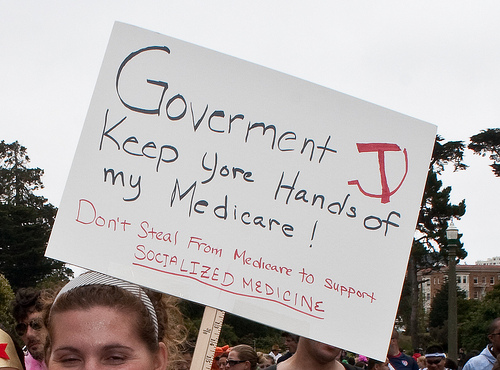
from allvoices.com
Muslims across Northern Africa rioted last week because they saw an American-made video depicting Muhammad as a homosexual and an idiot. Coming as they do so closely on the heels of the Arab Spring and the recent elections in Egypt, the protests -- many of them violent -- raise serious questions about the clash of values between "Western" and "Islamic" societies.
I have never bought Samuel Huntington's "Clash of Civilizations" thesis, in which he argues that the future of diplomacy will be focus on conflict between essential cultural groups. My problem with his argument is that he provides no useful definition of "civilization," despite his efforts to do so, and therefore can offer no universal rubric as he claims.
But there is no question that the people rioting in Cairo last week do not share American priorities, and Americans do not understand what the protesters are saying as a result. David Kirkpatrick said it best in the Times:
When the protests against an American-made online video mocking the Prophet Muhammad exploded in about 20 countries, the source of the rage was more than just religious sensitivity, political demagogy or resentment of Washington, protesters and their sympathizers here said. It was also a demand that many of them described with the word “freedom,” although in a context very different from the term’s use in the individualistic West: the right of a community, whether Muslim, Christian or Jewish, to be free from grave insult to its identity and values.Many people, when interviewed, simply would not accept the claim that the US government does not ban Holocaust deniers. They assume that every community has the right -- even the obligation -- to ban expression that it finds offensive. The failure to impose such a ban suggests to these Muslims an implicit endorsement of the expression.
We can never resolve this "disconnect." Muslims will not change their views on freedom of expression, and I certainly hope Americans will not change theirs. Both sides have merit, but the American position is, frankly, better.
It is the job of leaders, however, no navigate these differences wisely. Some clashes must result in serious conflict, and some must not. Distinguishing between the two is the essence of statesmanship. So far, President Obama has done well by exerting pressure on Egyptian and other leaders to maintain control while not ratcheting up the rhetoric in a way that will only exacerbate the problem.


